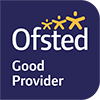E-Safety
At Cove School we are extremely positive about the potential that the online world and new technologies offer young people. They use technology to express themselves, be creative and explore - it has changed the way they communicate.
At Cove School we firmly believe that students should be given the opportunity to use the resources available to them responsibly and be supported in doing so. We are committed to helping them understand the dangers they face in an online world and have systems in place to support this.
We are also aware that most 11 – 16 year olds use online communication and the WWW in ways that parents often don’t understand and that this in itself also represents a major safety issue.
E-Safety in the Curriculum
At KS3 and 4 all computing and ICT classes explore the manner in which online communication and activities are rapidly changing.
We encourage all student to think carefully about key issues such as:
- Your digital footprint - The amount of personal information you place on the internet and the impact it can have
- Nettiquette – The manner in which we communicate online, protecting our real life and digital reputation
- Online threats and how to prevent them – In the ‘new frontier’ of the online world, existing and new threats pose a major risk to all who venture online. From viruses and other malware (malicious software) to phishing emails and other illegal means of obtaining personal data, students need to be on their guard whenever online.
- Cyberbullying – described as “the act of harming or harassing via information technology networks in a repeated and deliberate manner” in real life this is having a major impact on many students. For the perpetrators and victims it means a way to bully and be bullied remorselessly wherever you are.
What Can be Done?
Students and adults are frequently unaware that most online threats are covered by law in The Misuse of Computers Act and Data Protection Act. Penalties for offences are becoming increasingly severe.
If a student feels like someone has acted inappropriately towards them online via any form of social media this should be reported.
If instances of online abuse occur in school, students should immediately report these to their Form Tutor or other appropriate members of staff. These will then be referred to the Child Protection Team.
Some Top Tips for Online Safety
- Don’t post any personal information online – like your address, email address or mobile number.
- Think carefully before posting pictures or videos of yourself. Once you’ve put a picture of yourself online most people can see it and may be able to download it, it’s not just yours anymore.
- Keep your privacy settings as high as possible
- Never give out your passwords
- Don’t befriend people you don’t know
- Don’t meet up with people you’ve met online. Speak to your parent or carer about people suggesting you do
- Remember that not everyone online is who they say they are
- Think carefully about what you say before you post something online
- Respect other people’s views, even if you don’t agree with someone else’s views doesn’t mean you need to be rude
- If you see something online that makes you feel uncomfortable, unsafe or worried: leave the website, turn off your computer if you want to and tell a trusted adult immediately.
Outisde of school each of the main social media applications have 'report abuse' buttons which you can use but you can also contact the ‘Child Exploitation and Online Protection centre’ (CEOP). Their ‘Think U Know’ Website also provides helpful information and tips. Both of these websites can be accessed using the links above.


